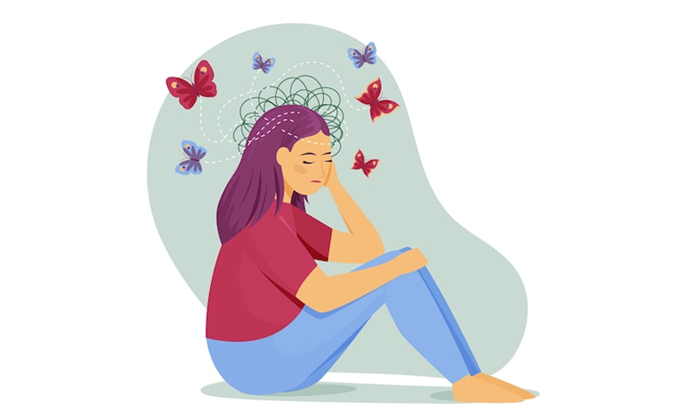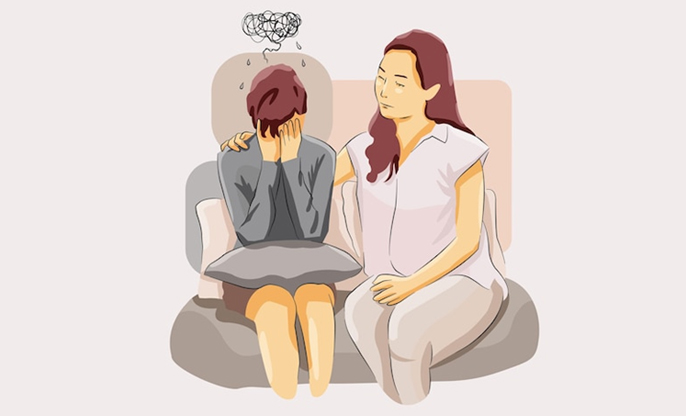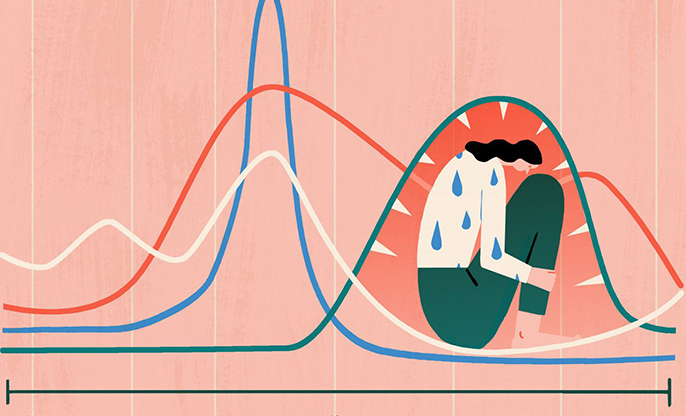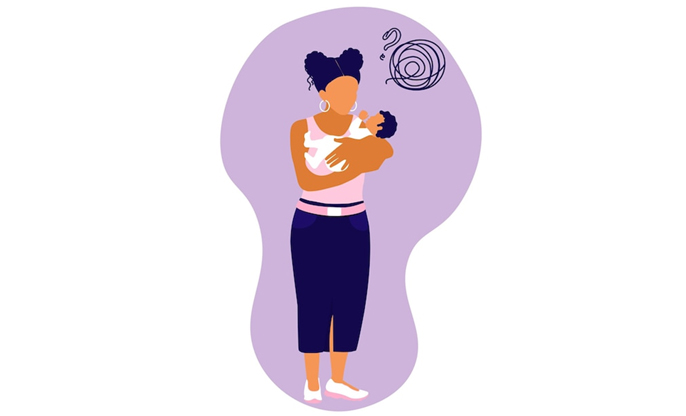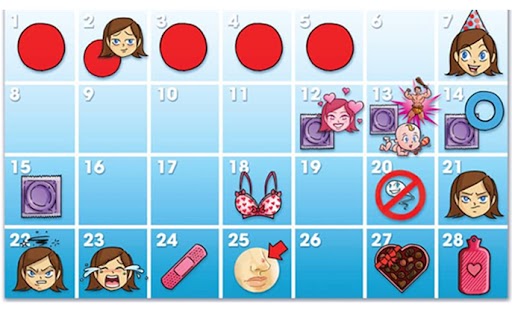
Causes, Symptoms, and Management
Navigating life with menstrual-related mood disorders can feel like an overwhelming journey that many of us endure silently. These conditions stretch beyond the common discomforts associated with the menstrual cycle, deeply impacting our mental well-being. From premenstrual syndrome (PMS) and premenstrual dysphoric disorder (PMDD) to the exacerbation of underlying mood disorders during our cycle, the emotional toll can be significant.
Understanding My Emotional Landscape During the Menstrual
Cycle
Premenstrual Syndrome (PMS) affects so many of us, with symptoms like mood swings, irritability, and anxiety that surface during the luteal phase each month and ease as menstruation begins. But when these symptoms intensify, disrupting daily life and straining relationships, it may be more than PMS - it could be PMDD, a debilitating condition affecting a smaller percentage of women. Then there’s menstrual exacerbation, where existing mood disorders like depression or bipolar disorder flare up in sync with my menstrual cycle, complicating the emotional challenges I face.
Symptoms That Signal a Deeper Issue
The emotional upheavals include intense mood swings, feelings of sadness, overwhelming anxiety, and persistent irritability that come with these disorders. Physically, I might battle with fatigue, headaches, and sleep disturbances, while behaviorally, changes in appetite, difficulty concentrating, and withdrawing from friends and family can signal that my body and mind are struggling.
Why Does This Happen to Me?
While the exact causes are elusive, it’s believed that shifts in estrogen and progesterone levels disrupt my body’s natural mood regulators, like serotonin. This hormonal turbulence, combined with genetic predispositions and lifestyle factors such as stress, diet, and sleep habits, can magnify my symptoms.
Empowering Oneself with Effective Management Strategies
Living with these
conditions means finding ways to reclaim stability and peace:
●
Lifestyle Tweaks: Regular exercise, a diet rich in essential nutrients,
and getting enough sleep is key.
●
Calming the Mind: Techniques like yoga, meditation, and mindfulness help
in managing stress and soothe emotions.
●
Medical Support: Sometimes, we need more than lifestyle changes, so
medications like SSRIs or hormonal treatments become necessary to stabilize our
mood effectively.
●
Therapy: Engaging in cognitive-behavioral therapy helps develop
skills to cope with negative thoughts and emotions tied to our menstrual cycle.
●
Natural Supplements: Explore safe supplements like calcium, magnesium, and
vitamin B6, which might ease symptoms.
● Building a Support Network: Connecting with others who understand what we are going through provides us with comfort and practical coping strategies.
Navigating menstrual-related mood disorders is a path we walk with resilience. Recognizing the symptoms, understanding the triggers, and adopting comprehensive management strategies enable us to mitigate their impact on our life. This journey isn’t walked alone, and with the right support and care, finding balance and joy amidst these challenges is entirely possible.
